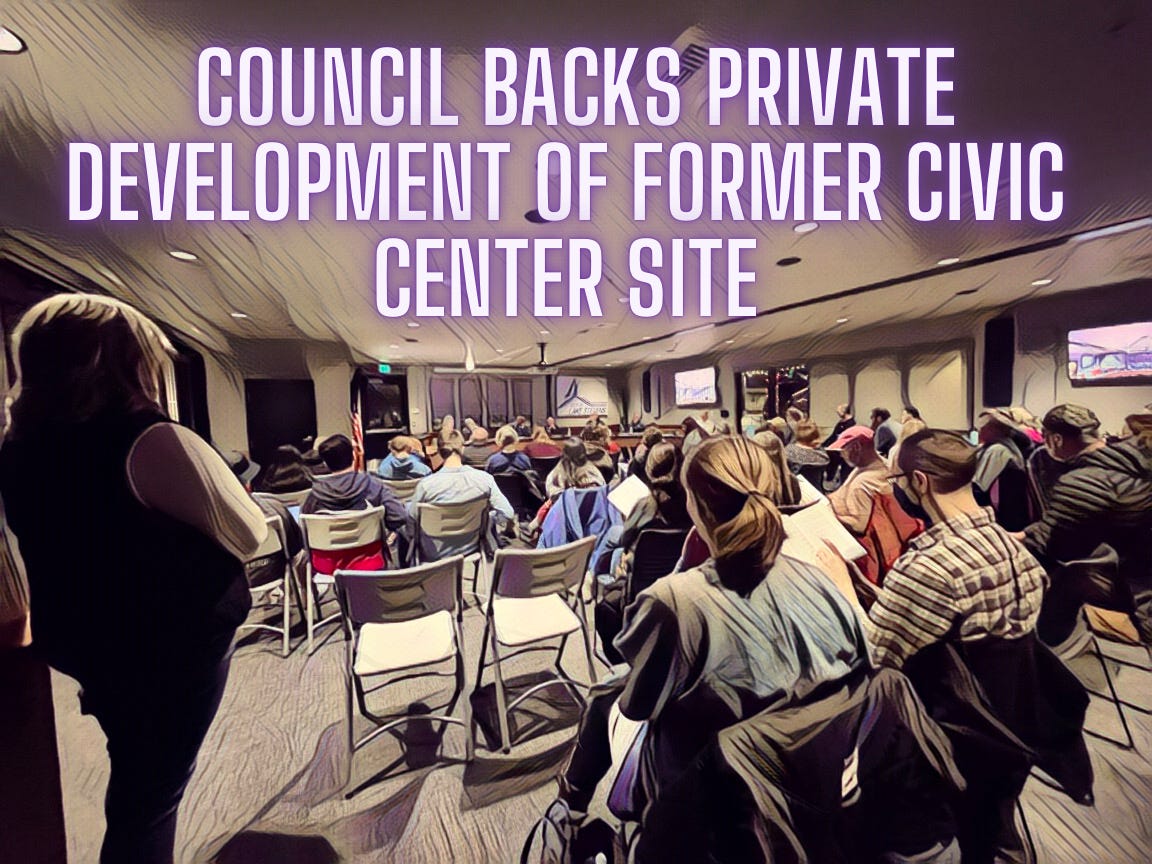Council Bucks Residents, Planning Commission in Chapel Hill Rezone
The Planning Commission recommended against it and a roomful of residents opposed it - but the Council’s plan to privately develop the former civic center site moved forward
The plan, as the City had described it to constituents, was a shared library and city hall campus that would combine adjoining Sno-Isle and City properties at 99th and Market — architectural drawings pictured a multi-acre campus surrounded by interpretive paths, rollings lawns, water features and edged by forests.




